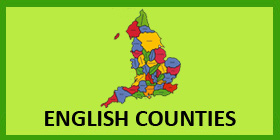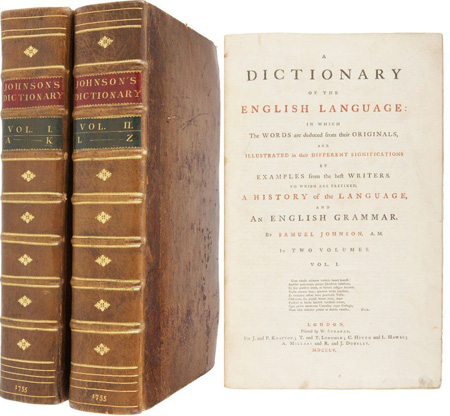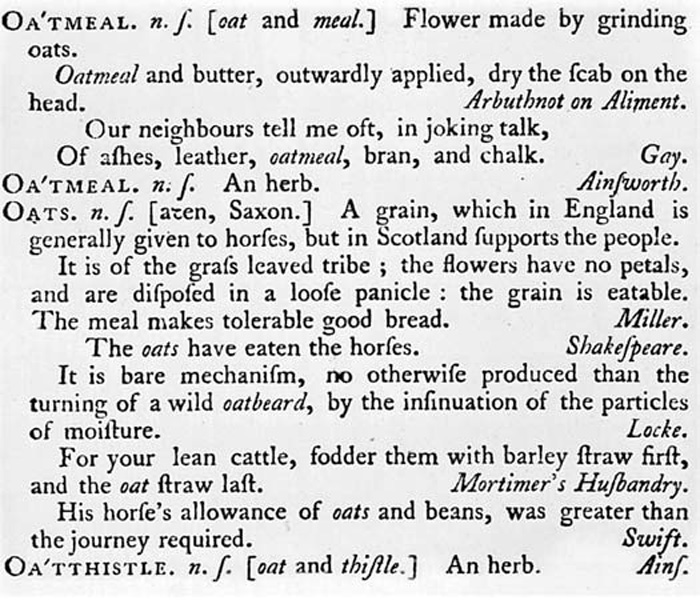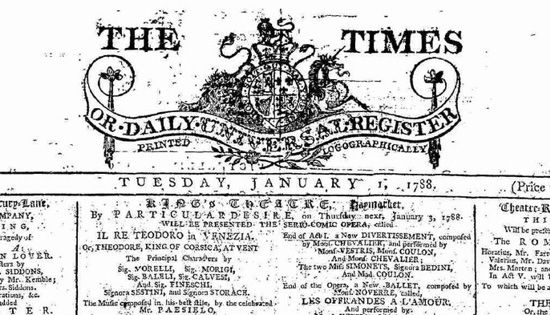




Back to the Mainly The Georgians calendar



Here is something to show you how times have changed over the last 250 years. By the way, the mathematicians amongst you will have spotted that it was in this year when the 7 years war, started in 1756, ended.
 However, we are going to look at things in print for this year. Firstly, John Wilkes was a journalist and, in 1757 he became an MP in Parliament. In 1762 he started a weekly newspaper, called The North Briton, in which he criticised the new Prime Minister, the Earl of Bute. In October of 1762 Wilkes fought a duel with William Talbot, a supporter of Bute, who Wilkes made fun of in one of his weekly editions. The duel was fought with pistols at night and at a distance of 8 metres each men missed the other. They then went to an inn and shared a bottle of wine.
However, we are going to look at things in print for this year. Firstly, John Wilkes was a journalist and, in 1757 he became an MP in Parliament. In 1762 he started a weekly newspaper, called The North Briton, in which he criticised the new Prime Minister, the Earl of Bute. In October of 1762 Wilkes fought a duel with William Talbot, a supporter of Bute, who Wilkes made fun of in one of his weekly editions. The duel was fought with pistols at night and at a distance of 8 metres each men missed the other. They then went to an inn and shared a bottle of wine.
In 1763, Wilkes criticised a speech made by George III but said to be written by Bute. The article was in issue 45 of the North Briton and people thought this significant as it was in '45 that the Jacobite rebellion, led by old Charles or Maria, had taken place. Bute was a Scotsman and Wilkes hinted that the King might be supporting Jacobism. The King got upset and issued warrants for the arrest of Wilkes and the publishers. Wilkes argued that as an MP he could say what he liked and he was freed. Parliament then voted to remove protection from MP's who said things outside of Parliament.
 Then Bute resigned but Wilkes didn't like his successor, George Grenville, either. A supporter of Grenville challenged Wilkes to another duel and shot him in the stomach. Wilkes survived. Rather a violent time in history here. Then Wilkes wrote a rather rude poem and the Earl of Sandwich read it out in the House of Lords. It caused a scandal and Wilkes ran away to Paris. He was tried in his absence and found guilty and made an outlaw on 19 January 1764.
Then Bute resigned but Wilkes didn't like his successor, George Grenville, either. A supporter of Grenville challenged Wilkes to another duel and shot him in the stomach. Wilkes survived. Rather a violent time in history here. Then Wilkes wrote a rather rude poem and the Earl of Sandwich read it out in the House of Lords. It caused a scandal and Wilkes ran away to Paris. He was tried in his absence and found guilty and made an outlaw on 19 January 1764.
In 1768, running out of money, Wilkes returned to England. The government didn't arrest him immediately, worried about the support he might have, and Wilkes was soon re-elected to Parliament. He then surrendered, was tried and sentenced to a fine of £2,000 and two years in prison. His supporters demonstrated and troops opened fire killing 7 and wounding 15, all of whom had been unarmed.
While in prison, Wilkes stood for Parliament again and was elected twice and expelled twice. After his release he continued his campaigns and helped gain the rights for printers to publish accounts of Parliament.
 Eight years before this, in 1755, after nine years of work, Samuel Johnson published his Dictionary of the English Language. The book, or books as it came in several volumes, has often been said to be the single most important piece of work about the English language ever. There had been dictionaries before but Johnson used examples from great writers to further explain and demonstrate the use of each word. It also had the largest collection of words of any dictionary at that time. It contained definition of 427,772 words.
Eight years before this, in 1755, after nine years of work, Samuel Johnson published his Dictionary of the English Language. The book, or books as it came in several volumes, has often been said to be the single most important piece of work about the English language ever. There had been dictionaries before but Johnson used examples from great writers to further explain and demonstrate the use of each word. It also had the largest collection of words of any dictionary at that time. It contained definition of 427,772 words.
 Johnson was a writer, a poet, a playwright and a literary critic amongst other things. He was born in 1709 and died 75 years later in 1784. Funnily enough he was 75 when he died. Isn't Maths wonderful. He was born in Lichfield in Staffordshire and, when he was older, he attended Pembroke College, Oxford. However, lack of funds meant he only studied for a year. He briefly worked as a teacher but soon moved to London and started to write for magazines.
Johnson was a writer, a poet, a playwright and a literary critic amongst other things. He was born in 1709 and died 75 years later in 1784. Funnily enough he was 75 when he died. Isn't Maths wonderful. He was born in Lichfield in Staffordshire and, when he was older, he attended Pembroke College, Oxford. However, lack of funds meant he only studied for a year. He briefly worked as a teacher but soon moved to London and started to write for magazines.
In 1763, (oh that's why it fits here) he became friends with James Boswell and the two later travelled to Scotland. He wrote about this in a Journey to the Western islands of Scotland. After his death, luckily, he was buried in Westminster Abbey. Until the Complete Oxford English Dictionary was published in 1928, Johnson's dictionary remained as the first source of reference for words in the English language. An example of a page from Johnson's dictionary is shown below

 One final story about printed works. On 1 January 1788 The Times newspaper was published for the first time. It had originally appeared in 1785 as the Daily Universal Register. It is Britain's oldest surviving daily newspaper. Newspaper had been published since the time of Henry VIII but it was not until now that one appeared daily.
One final story about printed works. On 1 January 1788 The Times newspaper was published for the first time. It had originally appeared in 1785 as the Daily Universal Register. It is Britain's oldest surviving daily newspaper. Newspaper had been published since the time of Henry VIII but it was not until now that one appeared daily.
And now nearly 250 years on, newspaper are no longer the way that news gets around. Newspapers exist but the internet and TV has taken over as the
way ordinary members of the public find out what is going on. And it is a much quicker way too.
Forward to 1768AD

